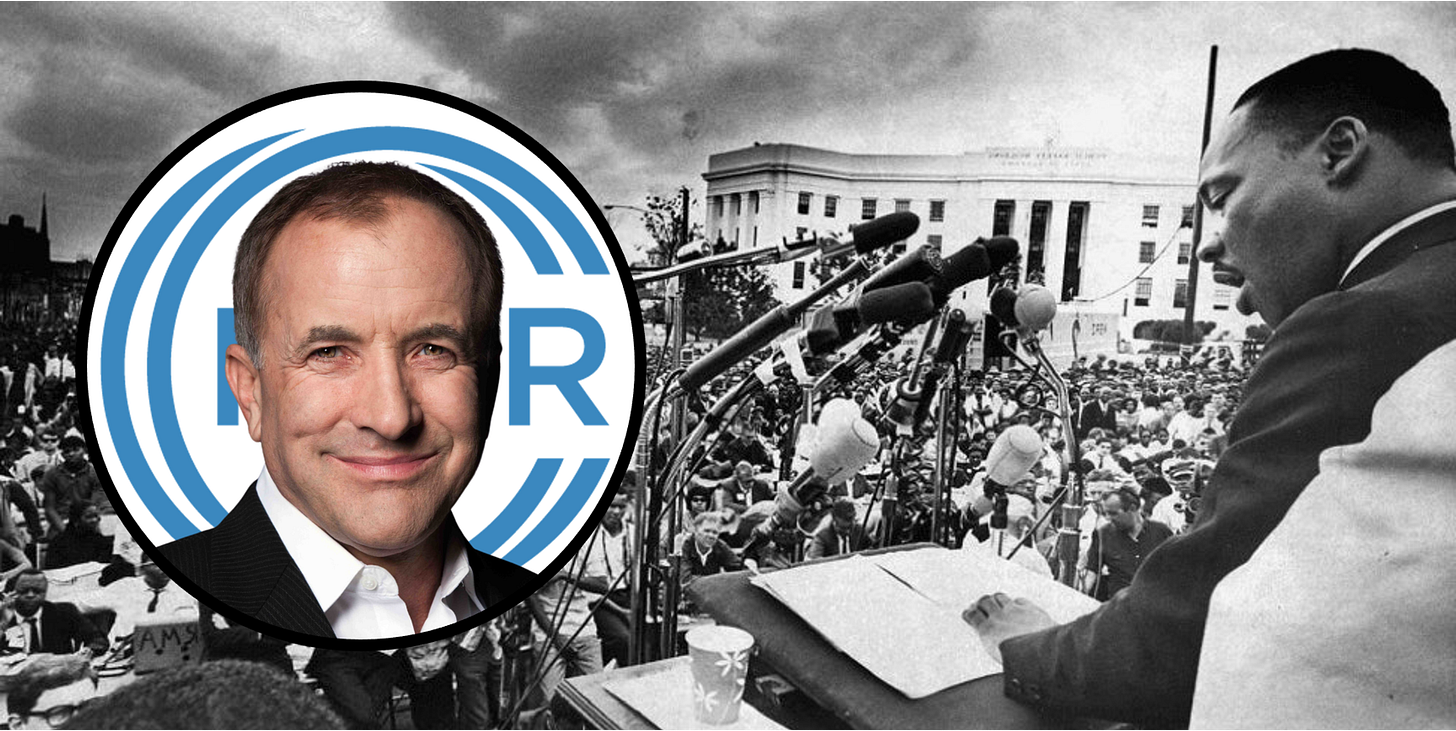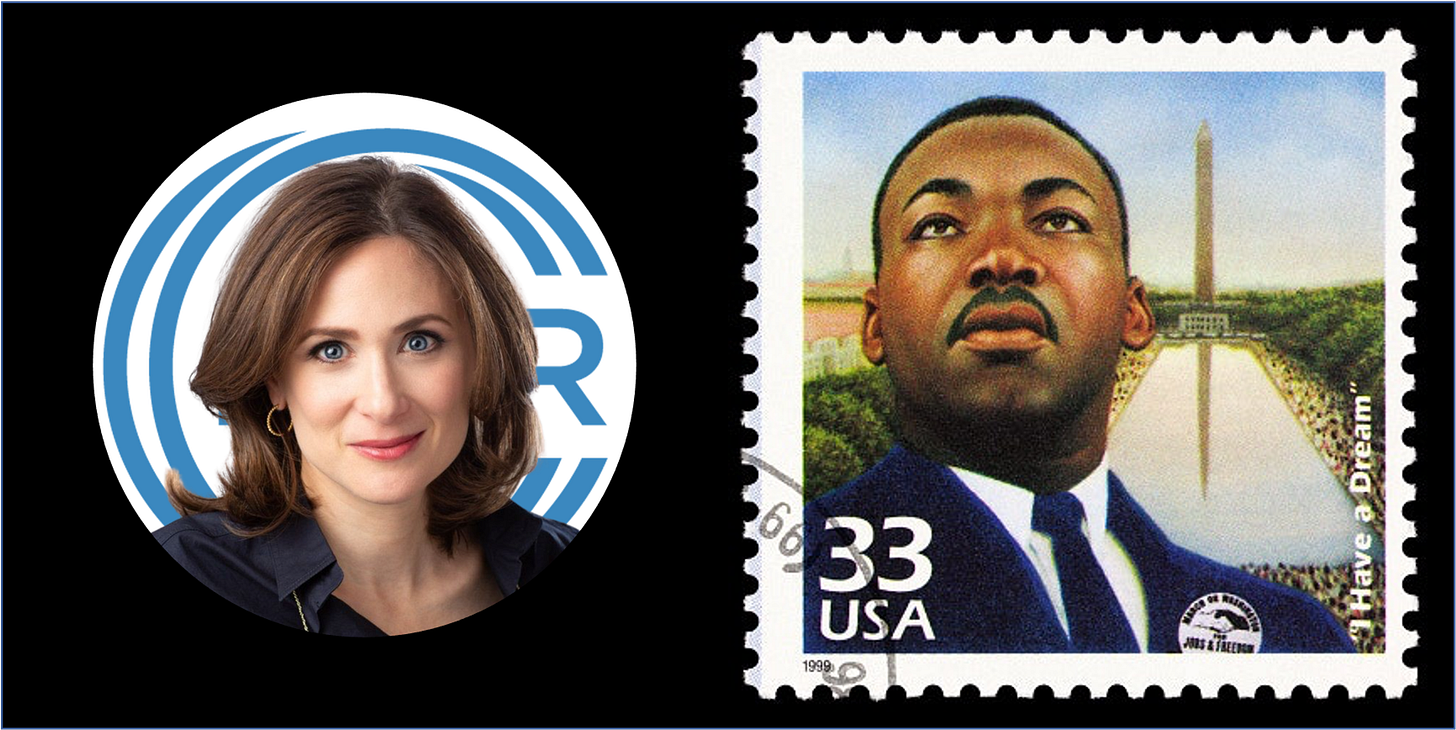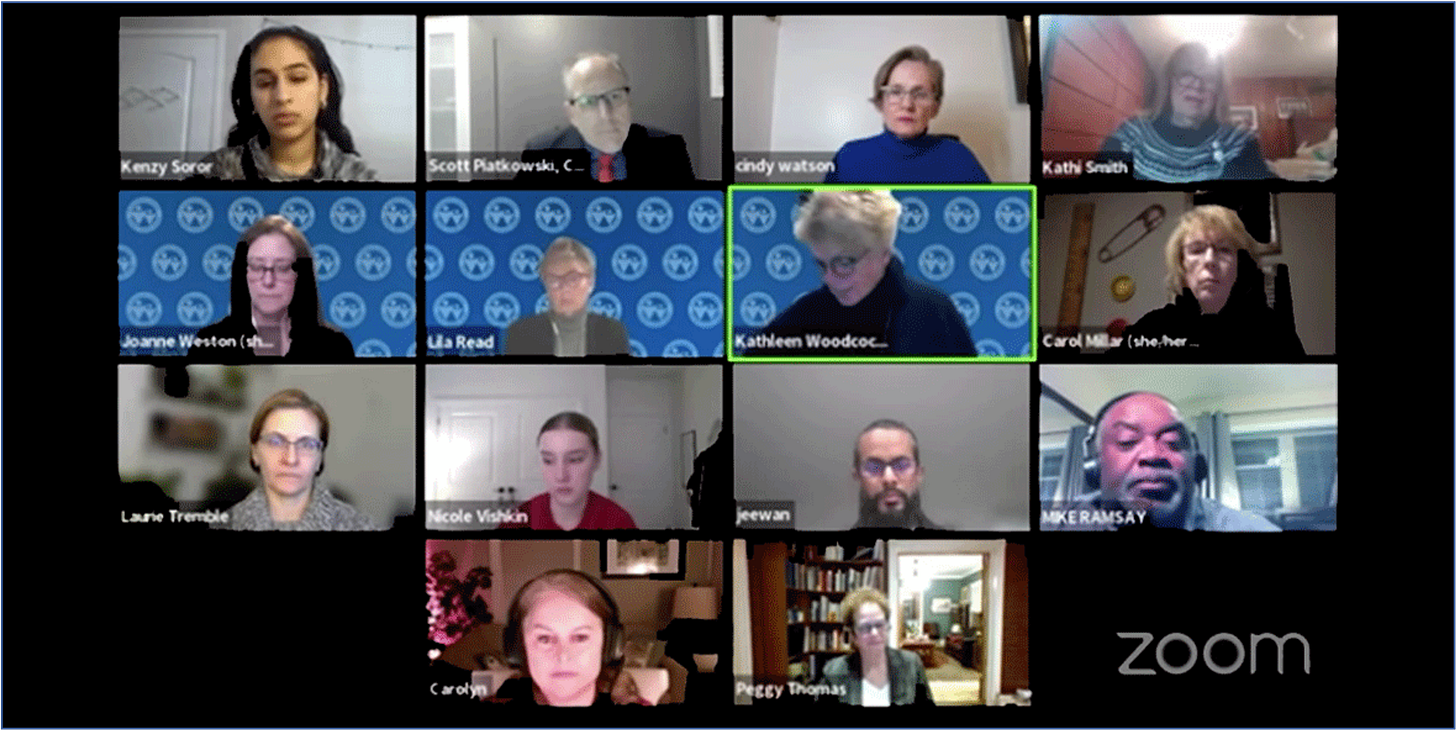For audio versions of our FAIR News and FAIR Weekly Roundup newsletters, subscribe and listen to our FAIR News Weekly podcast here.
On our Substack, YA author and FAIR volunteer Jefferson Shupe wrote an essay on how to help bridge seemingly intractable ideological divides. He believes that most conversations between people on different sides of a contentious issue are unsuccessful because both parties tend to immediately focus on their differences rather than their similarities. Indeed, he believes politicians and the media are incentivized to polarize.
Politicians and news media have much to gain by keeping us apart and suspicious of each other at a distance. After all, money, ratings, and reelections (i.e. power) are on the table. So dividers keep us hyper-focused on our differences. They divide us any way they can—even by our skin color—and they cut to commercial just as we’re about to dig into the meat of an issue where real understanding and progress might form.
But according to Shupe, we don’t have to take the bait. Instead, we can begin having productive conversations with others right now by focusing on “where [we] are already like-minded.” In taking this approach, Shupe believes we can “develop a new and deepening respect for each other” by realizing that our so-called “opponents” have “honest intentions just like you, but simply see the world differently.”
Read the full essay on our Substack here.
On his Substack Skeptic, FAIR Advisor Michael Shermer discussed Dr. Martin Luther King Jr.’s famous “How Long, Not Long” speech, which he delivered on the steps of the capitol in Montgomery, Alabama, on March 25th, to a crowd of at least 25,000.
In that speech, King quoted the 19th-century abolitionist preacher Theodore Parker, saying that “the arc of the moral universe is long, but it bends toward justice.” Shermer believes Reverends Parker and King were right, and recently wrote a book—The Moral Arc—which traces our moral progress over the ages using scientific data.
According to Shermer, “the moral development of the past several centuries has been the result of secular, not religious forces, and that the most important of these that emerged from the Age of Reason and the Enlightenment are science and reason…”
Shermer also argues that “the moral universe bends not merely toward justice, but toward truth and freedom,” and again credits the secular forces of the time for helping shape politics, law, and ethics. By better understanding the secular principles that gave rise to such moral and scientific flourishing, Shermer hopes that “we can do more to elevate humanity, extend the arc, and bend it ever upwards.”
For RealClear Policy, FAIR Advisor John Wood Jr. wrote about the selective quoting of Dr. Martin Luther King Jr. by people from across the political spectrum in order to claim King for themselves as a supporter of their own current political projects, and to portray their opponents as immoral. Wood believes that we must not attempt to simply “recapture” Dr Martin Luther King’s legacy, but rather expand it.
Wood explains that while many are quick to use King’s words in order to win short-sighted political battles, such as the famous line from his I Have a Dream speech that one day American children “will not be judged by the color of their skin but by the content of their character,” we often ignore his committedly pro-human and integrationist approach. Wood states:
[I]n an age of historic polarization it is worth remembering that it was also King who said that “we must not seek to defeat or humiliate the enemy but to win his friendship and understanding.” Do those who seek to co-opt King’s legacy for their own partisan agendas honor this moral call?
For his Substack Inquire, FAIR Advisor Zaid Jilani wrote about recent calls for more “transparency” regarding public school curricula by those on the political Right in response to their concerns about certain pedagogical approaches to issues of gender and race.
Jilani shows that the ACLU, despite having “always argued for government transparency in all arenas,” especially pertaining to conservative religious instruction and sex education curriculum, appear to now be reversing course, claiming that transparency would create a “chilling” effect. Jilani fears this is a result of the ACLU becoming increasingly involved in partisan activism. He states:
Among activist progressives, sensitivities about race and gender have often brought them to take positions that are in tension with classical liberal values like freedom of speech, transparency, and equal treatment under the law. Those same sensitivities appear to be trouncing the ACLU’s longstanding principles in this case.
In another piece from FAIR Advisor Zaid Jilani, this time in UnHerd, he used the recent hostage situation at a Texas synagogue to discuss Jewish-Muslim relations in the United States, reminding readers that Jewish-Muslim relations are “much better in the United States than they are elsewhere in the world.”
Compared to much of the world, data consistently indicates that the United States is “a relative haven for Jewish Americans and other minorities.” In fact, the reason the Texas hostage situation was shocking to so many is due to the rarity of such events.
Jilani believes there are two major reasons why “anti-Semitism has never quite caught on among American Muslims.” The first is that American Jews and Muslims are both highly-educated as groups, which “allows them to be socialised into similar environments” and makes them less susceptible to certain “negative stereotypes” often promoted in the news and schools. The second is the United States’ “colour blind liberal ethos” stressing that “group generalisations and discrimination are both irrational and harmful.”
Though Jilani believes that the latter may currently be “under threat,” he nevertheless holds that the color-blind approach “is still the best defence we have against the toxic tribalism that prevails in much of the world.”
On her Substack The Truth Fairy, FAIR Advisor Abigail Shrier wrote a powerful piece stating that the biggest political fault line in America is not between the Liberals and Conservatives, but rather between “Cynics” and “Believers.” Were it not for a few overly “catastrophized” wedge issues, Shrier believes that “Liberals and Conservatives would be in danger of finding too much common cause.”
According to Shrier, the Believers “possess deep faith in bedrock American principles” such as free speech, due process, equal protection, and religious liberty, while the Cynics hold disdain for those liberties as “ornamental” and “insufficient to stop the necrosis of a society in an advanced state of decay.”
Cynics come from all over the political spectrum, but so do Believers, and it is the latter who must band together to help heal America.
[B]etween Liberals and Conservatives today there is broad agreement: that America is fundamentally good. Imperfect, obviously. Currently imperiled, for certain. But full, coast-to-coast, with optimistic, generous, and industrious people. Our Constitution represents an astonishing achievement, the key to helping us out of whatever mess we’re in. We are all still Americans, after all.
For the National Post, Tom Blackwell reported on a recent incident in Ontario, Canada, where a school board shut down a teacher’s presentation outlining her concerns with certain books and other educational materials that were placed in the school’s K-6 library to promote “diversity” for Transgender Awareness Week.
The teacher, Carolyn Burjowski, exposed material that she believed contained age-inappropriate sexual content and portrayed medically transitioning to another gender as both simple and even “cool.” The school board ruled 5 to 4 to stop her presentation, saying that her comments may have “violated the province’s human rights code.” Later, on a local CTV station, a board member stated that Burjoski’s comments were “transphobic” and “questioned the right to exist” of trans people.
Burjowski was then ordered to stay at home, informed that she was not allowed to communicate with colleagues or students, and told that the board had “appointed an outside investigator to examine her actions.” She believes the school is trying to create a chilling effect by making an example of her.
“The message is clear” says Burjowski, “no dissent is allowed.”
On geneticist Razib Khan’s Substack Unsupervised Learning, 35 prominent biologists including luminaries such as Jerry Coyne, Nicholas Christakis, Joan Strassman, Mary Jane West-Eberhard, David Sloan Wilson, Marlene Zuk, and others, published a joint letter responding to and rebutting the claims of racism made against biology legend E.O. Wilson in a Scientific American essay published immediately after his death last December.
The letter calls the Scientific American essay “a bewilderingly flimsy opinion piece that ignored his exceptional legacy of scholarship, innovation and advocacy,” and instead used “his passing to attack science’s history of ‘white empiricism’ and ‘scientific racism.’” The authors further claim the piece was “weakly sourced and misinformed,” and contained “casual lapses in basic editing and fact-checking.”
Following a detailed rebuttal of the many factual and scientific errors peppered throughout the Scientific American essay, the authors conclude that:
Wilson’s insights speak for themselves and his dozens of worthy titles allow us to grapple with his actual ideas directly. His books are suffused with an abiding gratitude for and humble, lifelong wonder at the complexity of our natural world. Their impact will long outlive any hasty and poorly informed appraisals of his legacy.
Join the FAIR Community
Become a FAIR volunteer or to join a FAIR chapter.
Join a Welcome to FAIR Zoom information session to learn more about our mission, or watch a previously recorded session in the Members section of www.fairforall.org.
Take the Pro-Human Pledge and help promote a common culture based on fairness, understanding, and humanity.
Join the FAIR community to connect and share information with other members.
Share your reviews and incident reports on our FAIR Transparency website.













